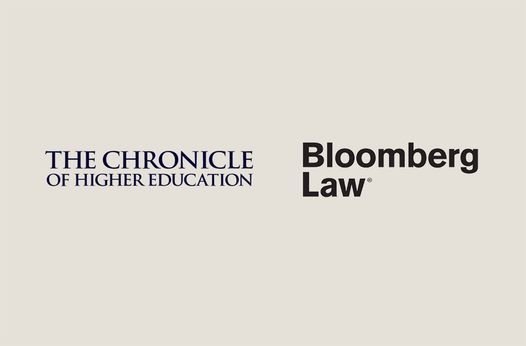California Appellate Court Denies Anti-SLAPP Motion and Sanctions Attorney for his "Tunnel Vision"
Lawyers for the Profession® Alert | 4 min read
Apr 26, 2022
Clarity Co. Consulting LLC v. Gabriel (Apr. 12, 2022, No. B311823), ___Cal.App.5th___
Brief Summary
A California appellate court affirmed the trial court's conclusion that a lawyer's anti-SLAPP motion was frivolous because the filing was not an issue of public interest, nor was it litigation activity. He was accordingly sanctioned for both filing a frivolous lawsuit and pursuing a frivolous appeal.
Complete Summary
Appellant, Larry Gabriel (Appellant), is the General Counsel of health care start-up, ONclick. Respondent, Clarity, Inc. (Respondent), entered into a written contract whereby Respondent provided services to ONclick. However, ONclick failed to pay. Respondent thus filed a complaint alleging breach of contract against ONclick as well as Appellant in his individual capacity.
Appellant argued he had acted solely in his role of General Counsel and that he became involved in this litigation after trying to negotiate a different long-term employment contract with ONclick and Respondent's CEO. ONclick had engaged in attempts to hire Respondent’s CEO for over $1,000,000 annually, which Respondent took as a sign that ONClick was doing well financially and would eventually pay their bill. Those employment negotiations broke down, and thereafter, Appellant and Respondent's attorney engaged in settlement discussions, during which Respondent's attorney threatened to sue Appellant personally. Respondent's complaint, however, does not address these settlement discussions, only the breach of contract.
Acting on his own initiative in the breach of contract action, Appellant filed a special motion to strike the complaint as a strategic lawsuit against public participation (SLAPP) against the fifth and sixth claims asserted. The fifth claim alleged Respondent detrimentally relied on misrepresentations regarding ONclick's financial health, whereas the sixth claim alleged that ONclick concealed information regarding its financial soundness.
A SLAPP suit seeks to chill or punish a party's exercise of constitutional rights to free speech and petition the government for redress of grievances. The legislature enacted Code of Civil procedure section 425.16, known as the anti-SLAPP statute, to provide a procedural remedy to dispose of lawsuits that are brought to chill these rights. In order to prevail on an anti-SLAPP motion, the defendant must first identify the activity that each challenged claim rests on and demonstrate that the activity is protected by the anti-SLAPP statute. This is satisfied if defendant can prove that plaintiff's conduct falls within 426.16(e), and the claims arise from conduct "in furtherance of a person's right of petition or free speech under the United States or California Constitution in connection with a public issue." Rand Resources, LLC v. City of Carson, (2019) 6 Cal.5th 610, 619-620.
Appellant argued that both the fifth and sixth claims – based on intentional misrepresentation and concealment – addressed his freedom of speech because after the employment contract negotiations broke down, Respondent's lawyer threatened to sue him personally which "invaded his ability to advise his client and attacked his efforts at settlement". Neither the trial court nor the Second District Court agreed.
Free Speech
The Second District noted that section 425.16 requires an "act in furtherance of a person's right of …free speech … in connection with a public issue." Appellant's negotiations regarding a private transaction were unconnected to any "public issue" or "issue of public interest." Thus, they did not fall into the protected category.
Litigation-Related Activity
Litigation-related activity is also protected under section 425.16(e), which applies to "any written or oral statement or writing made before a … judicial proceeding or … in connection with an issue under consideration or review by a judicial body." Code Civ. Proc., § 425.16(e)(1)-(2). Litigation-related activity does not have the issue of public interest limitation. This protection applies even in the context of fraudulent promises made during the settlement process.
The Second District observed that neither the fifth nor the sixth claim qualified as litigation-related conduct. Appellant's misrepresentations and concealments were not made in contemplation or anticipation of future litigation. Instead, Appellant's misrepresentations and concealments were made during negotiations regarding an employment contract. It was not until those negotiations broke down and ONclick refused to pay Respondent's services that negotiations turned toward settlement, and litigation-related activity began.
Sanctions
The Second District sanctioned Appellant in the amount of $12,798.50 (to Respondent) and $8,500 (to the court) for two reasons: (1) making a frivolous motion to strike and (2) pursuing a frivolous appeal. The Court noted that Appellant had "tunnel vision," and the trial court's decision should have "given him pause" before filing an appeal. Yet, undeterred by the trial court’s findings and so sure of his own case, he pursued his appeal.
A special motion to strike is frivolous if any reasonable attorney would agree the motion was totally devoid of merit. Gerbosi v. Gaims, Weil, West & Epstein, LLP (2011) 193 Cal.App.4th 435, 450. The Second District held that any reasonable attorney would agree that Appellant could not make a prima facie showing that his acts were in connection with a public issue or constituted litigation-related activity. The court held that Appellant's motion constituted "disturbing abuse" of the anti-SLAPP statute.
The court noted that sanctions for frivolous appeals should be used only to address the most egregious conduct. In re Marriage of Flaherty, (1982) 31 Cal.3d 637, 651. The Second District found that Appellant's appeal fell within this category and held that any reasonable attorney would have understood this was a matter of private concern and preceded any litigation-related conduct.
Significance of Decision
This decision demonstrates that attorneys should show restraint and not have "tunnel vision" regarding frivolousness when handling their own case (or appeal). Appellant's subjective view of his own case prevented him from seeing the larger (objective) picture. This mistake cost him nearly thirteen thousand dollars and a published opinion from the appellate court chastising him.
Featured Insights

Employment Law Observer
Dec 8, 2025
12 Days of California Labor and Employment: 2025 Year in Review

Press Release
Dec 4, 2025
Hinshaw Recognized by the Leadership Council for Legal Diversity as a 2025 Top Performer

Press Release
Nov 25, 2025
Hinshaw Legal Team Secures Summary Judgment in Gas Station Injury Case

Press Release
Nov 18, 2025
Hinshaw Releases the Third Edition of Duty to Defend: A Fifty-State Survey

In The News
Nov 13, 2025
A Profile on Neil Rollnick: After 57 Years in Practice, He Has No Plans to Retire

Press Release
Oct 22, 2025
Hinshaw & Culbertson LLP Launches New Website and Refreshed Brand







